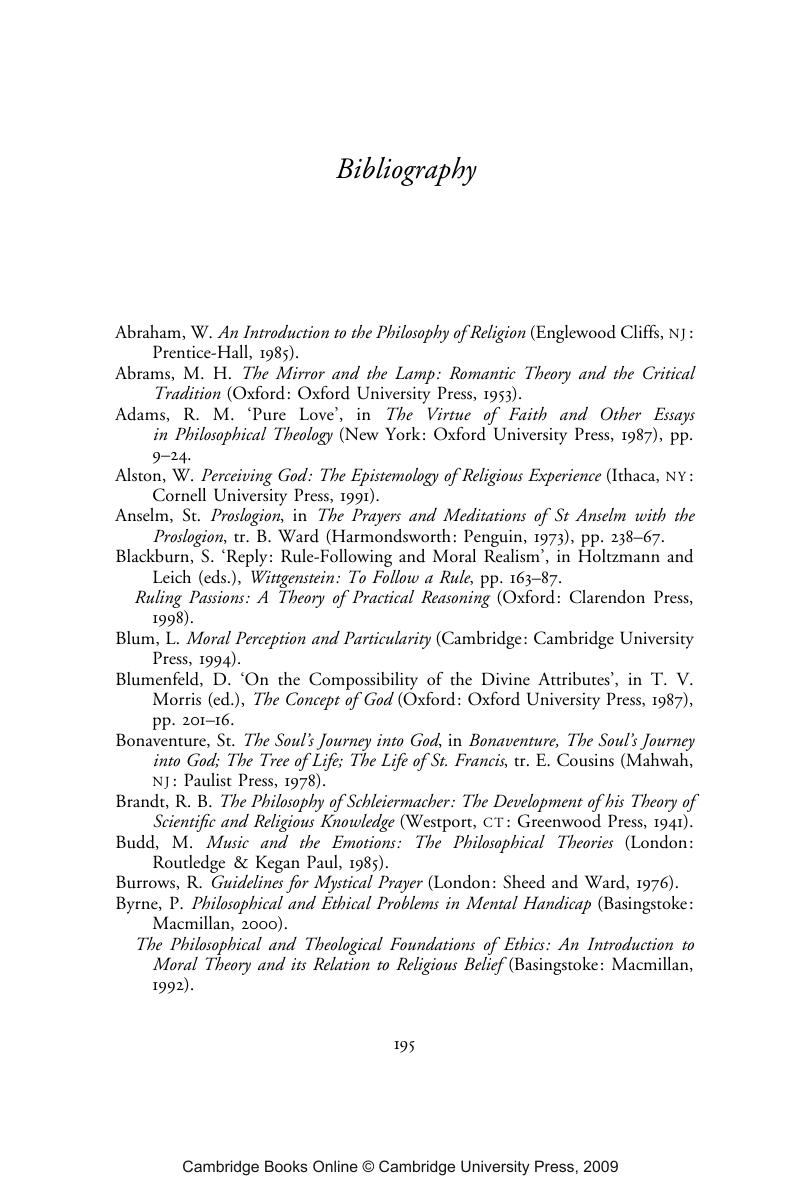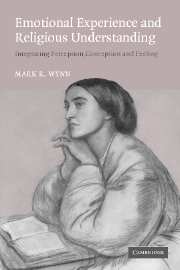Book contents
- Frontmatter
- Contents
- Preface
- Acknowledgements
- 1 Religious experience and the perception of value
- 2 Love, repentance, and the moral life
- 3 Finding and making value in the world
- 4 Emotional feeling: philosophical, psychological, and neurological perspectives
- 5 Emotional feeling and religious understanding
- 6 Representation in art and religion
- 7 The religious critique of feeling
- Bibliography
- Index
- References
Bibliography
Published online by Cambridge University Press: 03 December 2009
- Frontmatter
- Contents
- Preface
- Acknowledgements
- 1 Religious experience and the perception of value
- 2 Love, repentance, and the moral life
- 3 Finding and making value in the world
- 4 Emotional feeling: philosophical, psychological, and neurological perspectives
- 5 Emotional feeling and religious understanding
- 6 Representation in art and religion
- 7 The religious critique of feeling
- Bibliography
- Index
- References
Summary

- Type
- Chapter
- Information
- Emotional Experience and Religious UnderstandingIntegrating Perception, Conception and Feeling, pp. 195 - 200Publisher: Cambridge University PressPrint publication year: 2005

